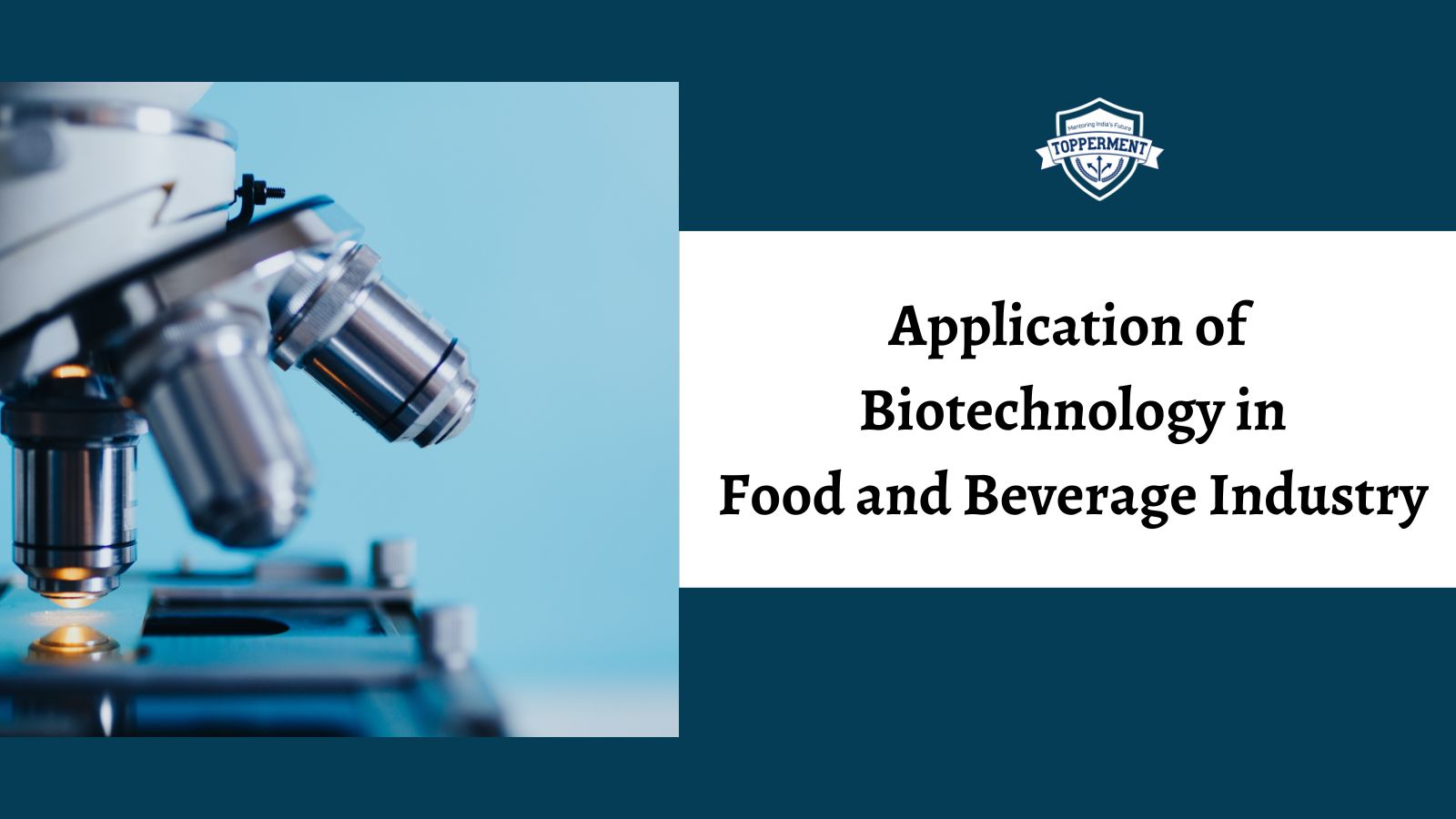
Application of Biotechnology in Food and Beverage Industry | UPSC Science and Technology
Biotechnology is the application of biological systems, organisms, or processes to develop or modify products or services. Biotechnology has revolutionized various sectors, and the food and beverage industry is no exception. The application of biotechnology in this industry has led to significant advancements, benefiting both producers and consumers. Biotechnology offers innovative solutions to enhance food quality, improve production efficiency, and address environmental concerns. In this article, we will explore some of the ways biotechnology is transforming the food and beverage industry.
Biotechnology In Food And Beverage Industry
One of the most prominent applications of biotechnology in the food and beverage industry is genetic modification, also known as genetic engineering. This involves altering the DNA of an organism to introduce desired traits. Genetic modification is employed to develop crops with enhanced nutritional content, disease resistance, and improved yield. For example, genetically modified crops like Bt cotton have shown resistance to pests, reducing the need for chemical pesticides. Similarly, golden rice has been engineered to produce beta-carotene, a precursor of vitamin A, which can help prevent blindness and other health problems in developing countries.
Another important application of biotechnology in the food and beverage industry is fermentation. This is a natural process that converts sugars into alcohol or organic acids using microorganisms like bacteria or yeast. Fermentation plays a crucial role in the production of alcoholic beverages, such as beer and wine.
Additionally, it is used to produce dairy products like cheese and yogurt, as well as popular food items like bread and pickles. Biotechnology has harnessed this process to produce a wide range of food and beverage products with improved quality, flavor, and shelf life. For instance, biotechnology has enabled the production of lactose-free milk and cheese for people with lactose intolerance. Moreover, biotechnology has facilitated the development of novel fermented products, such as probiotics and functional foods, that can enhance health and wellness.
Enzyme technology is another aspect of biotechnology that has a significant impact on the food and beverage industry. Enzymes are proteins that catalyze chemical reactions in living organisms. In the food and beverage industry, enzymes are used to enhance various processes, including food processing, flavor development, and waste management. Biotechnology has facilitated the production of specific enzymes through microbial fermentation or genetic engineering. These enzymes find applications in food processing, such as tenderizing meat, clarifying fruit juices, and improving the shelf life of products. Furthermore, enzymes are used to produce biofuels from biomass, such as corn and sugarcane, which can reduce greenhouse gas emissions and dependence on fossil fuels.
Biotechnology also plays a crucial role in ensuring food safety and quality. Advanced techniques like DNA-based testing methods are employed to detect foodborne pathogens and contaminants. These methods enable rapid and accurate identification of harmful microorganisms, ensuring timely intervention and preventing outbreaks of foodborne illnesses. Additionally, biotechnology can help monitor food quality throughout the supply chain using biosensors and smart packaging systems. These technologies can provide real-time information on the freshness, spoilage, or adulteration of food products.
Finally, biotechnology offers sustainable solutions for agriculture, promoting efficient resource utilization and reducing environmental impacts. For instance, genetically modified crops designed for drought tolerance or increased nitrogen fixation can help reduce water and fertilizer requirements, respectively. Biotechnological approaches also enable the development of biopesticides and biofertilizers, reducing reliance on chemical inputs and minimizing environmental pollution. Moreover, biotechnology can help conserve biodiversity by using gene banks and tissue culture techniques to preserve endangered plant species.
The application of biotechnology in the food and beverage industry has transformed the way we produce, process, and consume food. Genetic modification, fermentation, enzyme technology, food safety measures, and sustainable agriculture practices are just a few examples of how biotechnology is revolutionizing this sector. Biotechnology has the potential to further improve the quality, quantity, diversity, and safety of food products while addressing global challenges such as climate change, food security, and public health.
Also Read
Tag:Biotechnology, Food, IAS, IFS, IPS, IRS, Science and Technology, UPSC



